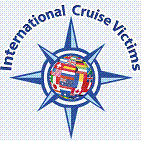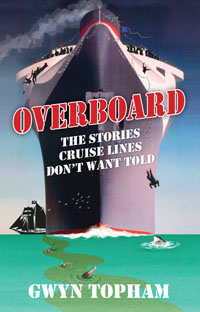Camila Peixoto Bandeira
According to Wikipedia, MSC Cruises is the world's fourth-largest cruise line. The Italian-owned company's Web sites extol its “stylish cruises” and “wonderful hospitality.” Yet a recent tragedy on an MSC vessel in a Brazilian port has left authorities uncertain whether they are handling a case of murder, homicide, or suicide. And some people are asking if the cruise line itself has an interest in influencing what the verdict may be.
The cruise ship Musica on January 10, 2010, docked at Brazil's Port of Santos as part of a schedule that began in the Mediterranean and included South America . Around 7 a.m. that day, 30-year-old Souza Bicalho, a crew member who served as a waiter, left the cabin that he shared with his girlfriend, Camila Peixoto Bandeira, to begin work.
Less than three hours later, Bicalho returned to the cabin, where, he reported, he found the body of the 28-year-old woman hanging wrapped in a sheet in what he described as a suicide.
Bandeira's brother, Jose Godolphim, said that she was last seen at work (she was working as a bartender on the Musica) about 11 p.m. the night before. People on the ship said that she lookied happy. After getting off work, he said, she went straight to her cabin.
According to Brazil's Jornal da Tarde, police verified that nobody had entered the cabin between 7 a.m. and 10 a.m. (The doors of passenger cabins record every time a magnetic card is swiped to give someone access. However, no record is kept when a door is opened from the inside, or when more than one person enters on one swiped card.) The newspaper also reported Bicalho's statement that he saw Bandeira's body hanging wrapped in a sheet, implying possible suicide.
However, the newspaper also said that Bicalho, questioned three times about what he saw, contradicted himself and admitted tampering with the crime scene. It is not known at this time even whether a sheet was in the cabin ... at least one person reported hearing crew members saying that none was found.
Oddly, Godolphim said, although his sister normally opened the bar at which she worked at 7 a.m., on the day her body was discovered her schedule had been changed; she was, for some reason, to begin work in the afternoon. He said that she could not have known about this in advance, as she talked daily with her family and would have mentioned a change of schedule.
Godolphim also said that his sister had said Port of Santos would be her last stop on the voyage; she planned to break her contract with the cruise line and disembark. One reason for this was that she was eager to start working in a restaurant that the family was opening on shore; another reason, she specifically said in calls on January 6 and 7, was that her boyfriend was assaulting her. Godolphim said in an e-mail that she had gone to the ship's medical center to have bruises and other injuries from these assaults treated; he also said that she had reported the beatings (“punches to the head, kicks to the stomach,” he quoted her as saying) to cruise line officials, asking for a change of cabin, but that nothing was done about her request.
How prepared were cruise personnel in the face of such a catastrophe? Godolphim said in an e-mail that the ship's normal schedule at Port of Santos was to dock at 9 a.m. local time. On that day, however, it docked at 4 p.m. and went back to sea at 10 p.m., continuing the cruise. Is it possible that uncertainty over how to handle this situation caused the delay? No information is available on what explanation, if any, was made to the passengers.
Nor, according to Godolphim, were cruise personnel anxious about his family. He was not informed of his sister's death until about 10 p.m. that night. His informant? The chief suspect himself. "No commander of the ship, no social worker, no word of consolation ... nothing,” he said. When contacted, MSC had no comment.
Moreover while the family was able to retrieve many of her personal belongings, some items were missing, among them shoes, books, phones, watches, a digital camera, and a laptop computer.
Traces of cocaine reportedly were found in Bandeira's blouse, but Brazilian authorities cautioned that there was no reason to assume that she used the drug. It may be relevant that, according to Godolphim, Bicalho had asked her to help him rig things so that he could pass the drug test required of employees.
Godolphim pointed out that the bar where Bicalho worked was a walk of about three minutes from the cabin. On at least three occasions after he began work that morning, he was absent from his post for brief periods. Authorities have taken toxicological tests, but apparently the results will not be released until sixty days after the discovery of the body. At that time, perhaps, the public will learn more about this tragedy ... and about the determination, or lack of it, on the part of the cruise line to get answers.
Camila Peixoto Bandeira
Victims Helping Victims
Together We Are Making A Difference
Partners
Things
You Should Know
Before
You Leave Port
Read
Don't Snooze Before You Cruise
Read
I Just Cant




